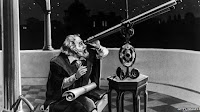Prophets are without honour in their own country.
This saying turns up in all three of the synoptic gospels
This saying turns up in all three of the synoptic gospels
Matthew 13.57 'And they took offence at him. But Jesus said to them, ‘Prophets are not without honour except in their own country and in their own house.’
Mark 6.4 'And they took offence at him. Then Jesus said to them, ‘Prophets are not without honour, except in their home town, and among their own kin, and in their own house.’
Luke 4.24 ‘And he said, ‘Truly I tell you, no prophet is accepted in the prophet’s home town.’
Obviously it was very important to the writers of all of the gospels as they wrote to their own congregations, decades after the death of Jesus. So one could assume that it spoke to something that was very real to them. Were these writers perhaps finding that they were offending the authorities, or a high-profile member of their synagogue? Whatever the reason was, we can only speculate on it. However it has proven true over the last 3000+ years. We all know of those who were shunned, imprisoned or even lost their lives because they were prophets.
 Jeremiah, an old Testament prophet was put down a well as a prisoner [Jeremiah 36.8], Jesus was crucified, and Galileo was suspected of heresy, forced to recant and lived out his life under house arrest in the 1600’s when he said the the earth revolved around the sun and was NOT the centre of the universe.The fact that these three men and countless others like them are remembered today for who they were and what they did, was of no comfort to them when it happened!!!!
Jeremiah, an old Testament prophet was put down a well as a prisoner [Jeremiah 36.8], Jesus was crucified, and Galileo was suspected of heresy, forced to recant and lived out his life under house arrest in the 1600’s when he said the the earth revolved around the sun and was NOT the centre of the universe.The fact that these three men and countless others like them are remembered today for who they were and what they did, was of no comfort to them when it happened!!!!
We have seen this happening today in the lives of Martin Luther King Jr., Oscar Romero and many others who were either killed or silenced. We tend to think of a prophet as being ‘one who foretells future events’, when that is merely one of a number of current understandings. When used in the Bible, it means ‘one gifted with more than ordinary spiritual and moral insight’.
We all know of people today who are marginalized by those in power because their words and actions make others uncomfortable. They are the prophets of our time. They are the people who started such movements from the ground up like ‘Black Lives Matter” or “The Occupy Movement”. They might well be called whistle-blowers.
But many are just ordinary people, who will never be part of a headline, or found a movement, but who feel this urge within themselves to be prophets, to spread the spiritual or moral insight that they have. We need to ask ourselves why it is that our institutions gag these people rather than encouraging and accepting their wisdom. What are they so afraid of? Are they that vulnerable that they can’t survive a new idea, a new way of imaging life?

Literally burning them at the stake was one way of dealing with prophets not all that long ago. And we still do that to our modern-day prophets only the firewood is replaced with a lack of economic support and verbal attacks.
Do you know a modern-day prophet?
What have you done to support him or her?

Comments
Post a Comment